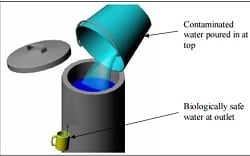
Agriculture
January 10, 2024
Ideas at Work Biosand Filter
Read SolutionImplemented by
Ideas at Work
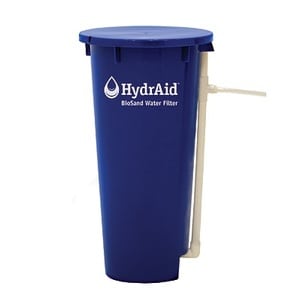
Updated on January 10, 2024
·Created on August 27, 2015
Hydraid is a plastic bodied biosand filter used to purify water.
The Hydraid® BioSand Water Filter is a patented, lightweight, household, point-of-use filter powered by gravity. The filter design is inspired by the open-source BioSand Filtration technology but uses a lightweight plastic housing instead of concrete. It is suggested that this technology is more portable, scalable and affordable compared to traditional concrete filters.
Target SDGs
SDG 6: Clean Water and Sanitation
SDG 3: Good Health and Well-Being
Market Suggested Retail Price
$75.00
Target Users (Target Impact Group)
Household
Distributors / Implementing Organizations
Triple Quest – a collaborative social enterprise between Cascade Engineering and The Windquest Group (a West Michigan private investment fund) partners with entrepreneurs and NGOs in the developing world to make the Hydraid biosand filters available. Hydraid works with the local organizations to import the plastic containers, create the sand filter, and educate users.
Competitive Landscape
Direct competitors include DHAN Biosand Filters and BushProof Biosand Filter.
Manufacturing/Building Method
Mass-production of extruded plastic containers combined with manual assembly of sand/rock media. Manufacturing led by NativeEnergy.
Intellectural Property Type
Patent
User Provision Model
Available for bulk purchase to partner organizations via the social enterprise Triple Quest which partners with entrepreneurs and NGOs in the developing world to make the Hydraid biosand filters available. Hydraid works with the local organizations to import the plastic containers, create the sand filter, and educate users.
Distributions to Date Status
Today there are more than 75,000 Hydraid water filters in 46 countries.
Target use case
Household use
Manufacturer-specified flow rate (L/hr)
47
Bacteria reduction
Unknown
Protozoa reduction
Unknown
Virus reduction
Unknown
Heavy metals and/or arsenic reduction
Unknown
Maximum recommended influent turbidity level (NTU)
<10
Effluent turbidity levels (NTU)
Unknown
Manufacturer-specified volume between cleaning (L)
Unknown
Material of construction
Medical-grade, UV resistant plastic, fine sand and gravel
Design Specifications
The Hydraid® BioSand Water Filter is comprised of a plastic container that is filled with layers of sieved and washed sand and gravel. Water is poured into the top of the filter where it collects in a storage container. The water passes through the diffuser plate and the sand and gravel layers. Head pressure pushes water through the pipe in the base to the outlet point. Biological contamination is reduced through the actions of adsorption; mechanical filtering, predation (biological layer) and natural die off.
Height – 0.77 m (30.5?), Diameter – 0.42 m (16.5?);
Weight: Empty – 3.6kg (8 lbs.), Filled – 63.5kg (140 lbs.)
Construction materials: UV-resistant plastic, FDA-approved materials, no moving parts The external outlet pipe may be prone to damage and leakage.
Technical Support
Technical support is expected to be provided by the user.
Replacement Components
The plastic housing is available from the manufacturer while the filtration media is expected to be available locally.
Lifecycle
Manufacturer estimates the lifecycle to be more than than 10 years.
Manufacturer Specified Performance Parameters
The Hydraid® BioSand Water Filter manufacturer claims the following: Easy Installation: about 30 minutes (level and fill with sand). Filtering Capacity: 47 liters/hour. Serves the needs of 8-10 people daily. Prep Time: Surface biological layer forms naturally in about 2 weeks
Vetted Performance Status
In 2008, three health impact studies were performed specifically on the plastic Hydraid® BioSand Water Filter and involved 81 filters installed in Cambodian households, 89 in Honduran households and 115 in Ghanaian households. In 2012 the health impact study on the plastic Hydraid® BioSand Water Filter showed greater or comparable reduction in diarrheal disease in comparison to trials of concrete biosand water filters in Cambodia, Kenya and the Dominican Republic. Link broken as of 2018
Safety
University of North Carolina and CAWST
Complementary Technical Systems
Safe water storage container.
Academic Research and References
Specific publications featuring the Hydraid BSF include: Stauber, C., Kominek, B., Liang, K., Osman, M., & Sobsey, M. (2012). Evaluation of the Impact of the Plastic BioSand Filter on Health and Drinking Water Quality in Rural Tamale, Ghana. International Journal of Environmental Research and Public Health, 9(12), 3806–3823.
Point of Use Household Drinking Water Filtration: A Practical, Effective Solution for Providing Sustained Access to Safe Drinking Water in the Developing World. Mark D. Sobsey, et.al., Department of Environmental Sciences and Engineering, CB#7431, University of North Carolina, Chapel Hill, North Carolina 27599-7431 Environ. Sci. Technol., 2008, 42 (12), pp 4261–4267. DOI: 10.1021/es702746n
E. Neal Caldwell and J. K. Hodges, “Water filter system,” 8778175, 15-Jul-2014
CAWST, “Product: Hydraid Biosand Filter,” Product: Hydraid Biosand. Available: https://www.hwts.info/products-technologies/07e65cbc/hydraid-biosand-filter
“Goal 6,” Sdgs.un.org. Available: https://sdgs.un.org/goals/goal6
CDC, “Household Water Treatment,” Centers for Disease Control and Prevention, 20-Oct-2022. Available: https://www.cdc.gov/healthywater/global/household-water-treatment.html
CAWST, “Biosand Filters Knowledge Base,” Biosand Filters Knowledge Base. Available: https://www.biosandfilters.info
Compliance with regulations
The BSF unit’s medical-grade plastic is FDA approved for drinking water.
Evaluation methods
Lab testing of filtered water quality. Health impact studies have long been used to assess the impact of various technologies and investments in water, sanitation and hygiene interventions and are particularly useful as evaluation tools in understanding the interconnected necessity of water, sanitation and hygiene for health and development.
Other Information
None.

Agriculture
January 10, 2024
Implemented by
Ideas at Work
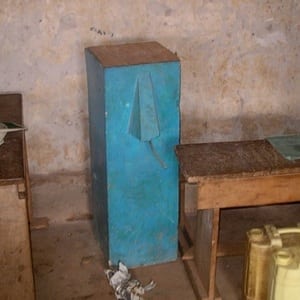
Agriculture
January 10, 2024
Implemented by
Dr. David Manz, University of Calgary

Agriculture
January 10, 2024
Implemented by
Dr. David Manz, University of Calgary
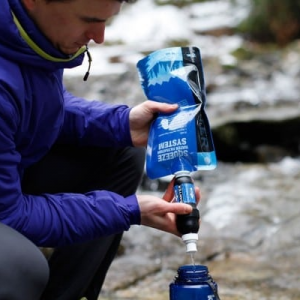
Agriculture
December 29, 2023
Implemented by
Sawyer
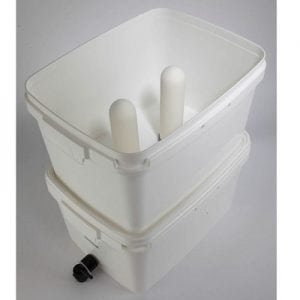
Agriculture
January 11, 2024
Implemented by
Doulton

Agriculture
January 2, 2024
Implemented by
Village Water Filters, Inc.
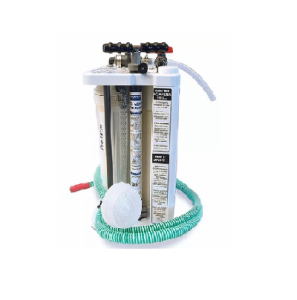
Agriculture
December 28, 2023
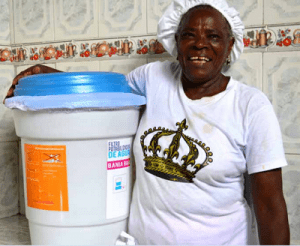
Agriculture
January 5, 2024
Implemented by
Universidad Tecnológica de Pereira (UTP)
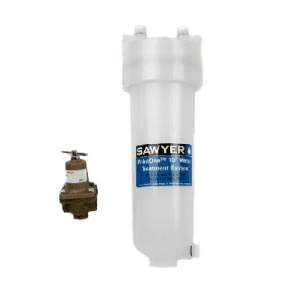
Agriculture
December 29, 2023
Implemented by
Sawyer
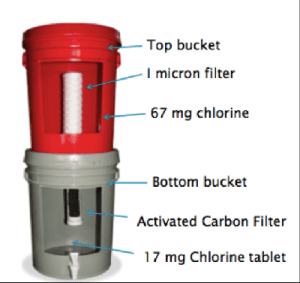
Agriculture
January 24, 2024
Implemented by
Gift of Water
Have thoughts on how we can improve?
Give Us Feedback